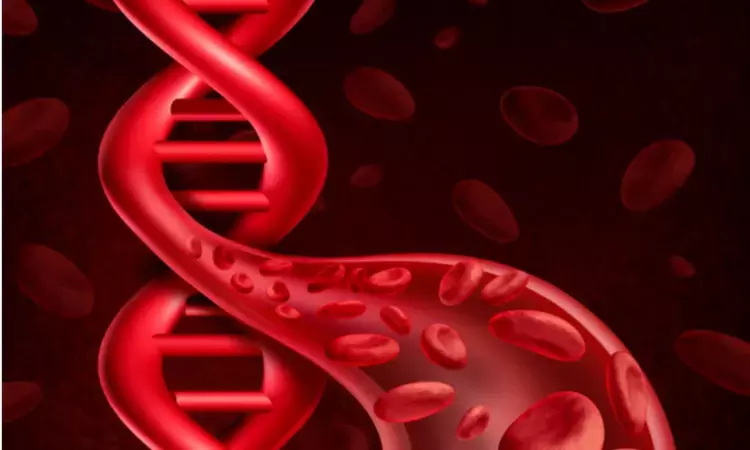- Home
- Medical news & Guidelines
- Anesthesiology
- Cardiology and CTVS
- Critical Care
- Dentistry
- Dermatology
- Diabetes and Endocrinology
- ENT
- Gastroenterology
- Medicine
- Nephrology
- Neurology
- Obstretics-Gynaecology
- Oncology
- Ophthalmology
- Orthopaedics
- Pediatrics-Neonatology
- Psychiatry
- Pulmonology
- Radiology
- Surgery
- Urology
- Laboratory Medicine
- Diet
- Nursing
- Paramedical
- Physiotherapy
- Health news
- Fact Check
- Bone Health Fact Check
- Brain Health Fact Check
- Cancer Related Fact Check
- Child Care Fact Check
- Dental and oral health fact check
- Diabetes and metabolic health fact check
- Diet and Nutrition Fact Check
- Eye and ENT Care Fact Check
- Fitness fact check
- Gut health fact check
- Heart health fact check
- Kidney health fact check
- Medical education fact check
- Men's health fact check
- Respiratory fact check
- Skin and hair care fact check
- Vaccine and Immunization fact check
- Women's health fact check
- AYUSH
- State News
- Andaman and Nicobar Islands
- Andhra Pradesh
- Arunachal Pradesh
- Assam
- Bihar
- Chandigarh
- Chattisgarh
- Dadra and Nagar Haveli
- Daman and Diu
- Delhi
- Goa
- Gujarat
- Haryana
- Himachal Pradesh
- Jammu & Kashmir
- Jharkhand
- Karnataka
- Kerala
- Ladakh
- Lakshadweep
- Madhya Pradesh
- Maharashtra
- Manipur
- Meghalaya
- Mizoram
- Nagaland
- Odisha
- Puducherry
- Punjab
- Rajasthan
- Sikkim
- Tamil Nadu
- Telangana
- Tripura
- Uttar Pradesh
- Uttrakhand
- West Bengal
- Medical Education
- Industry
Gene therapy effective in beta-thalassemia, reduces need for transfusion: NEJM

USA: A phase III study showed betibeglogene autotemcel (beti-cel) gene therapy to be safe and effective in patients with non-β0/β0 genotype β-thalassemia.
The study, published in the New England Journal of Medicine, found that treatment with the gene therapy led to a sustained HbAT87Q level and a total hemoglobin level that was high enough to allow transfusion independence in the study population, including those younger than 12 years of age.
Beti-cel gene therapy contains autologous CD34+ hematopoietic stem cells and progenitor cells transduced with the BB305 lentiviral vector encoding the β-globin (βA-T87Q) gene. Franco Locatelli and the team aimed to evaluate its safety and efficacy in adult and pediatric patients with transfusion-dependent β-thalassemia and a non–β0/β0 genotype.
For this purpose, 23 patients underwent myeloablation with busulfan (with doses adjusted on the basis of pharmacokinetic analysis) and received beti-cel intravenously. They were followed for a median of 29.5 months.
The primary endpoint was transfusion independence defined as weighted average hemoglobin level of ≥9 g per deciliter without red-cell transfusions for ≥12 months.
The study revealed the following findings:
- Transfusion independence occurred in 20 of 22 patients who could be evaluated (91%), including 6 of 7 patients (86%) who were younger than 12 years of age.
- The average hemoglobin level during transfusion independence was 11.7 g per deciliter.
- Twelve months after beti-cel infusion, the median level of gene therapy–derived adult hemoglobin (HbA) with a T87Q amino acid substitution (HbAT87Q) was 8.7 g per deciliter in patients who had transfusion independence.
- The safety profile of beti-cel was consistent with that of busulfan-based myeloablation.
- Four patients had at least one adverse event that was considered by the investigators to be related or possibly related to beti-cel; all events were nonserious except for thrombocytopenia (in 1 patient).
- No cases of cancer were observed.
To conclude, treatment with beti-cel resulted in a sustained HbAT87Q level and a total hemoglobin level that was high enough to enable transfusion independence in most patients with a non–β0/β0 genotype, including those younger than 12 years of age.
Reference:
The study titled, "Betibeglogene Autotemcel Gene Therapy for Non–β0/β0 Genotype β-Thalassemia," was published in the New England Journal of Medicine.
Dr Kamal Kant Kohli-MBBS, DTCD- a chest specialist with more than 30 years of practice and a flair for writing clinical articles, Dr Kamal Kant Kohli joined Medical Dialogues as a Chief Editor of Medical News. Besides writing articles, as an editor, he proofreads and verifies all the medical content published on Medical Dialogues including those coming from journals, studies,medical conferences,guidelines etc. Email: drkohli@medicaldialogues.in. Contact no. 011-43720751


